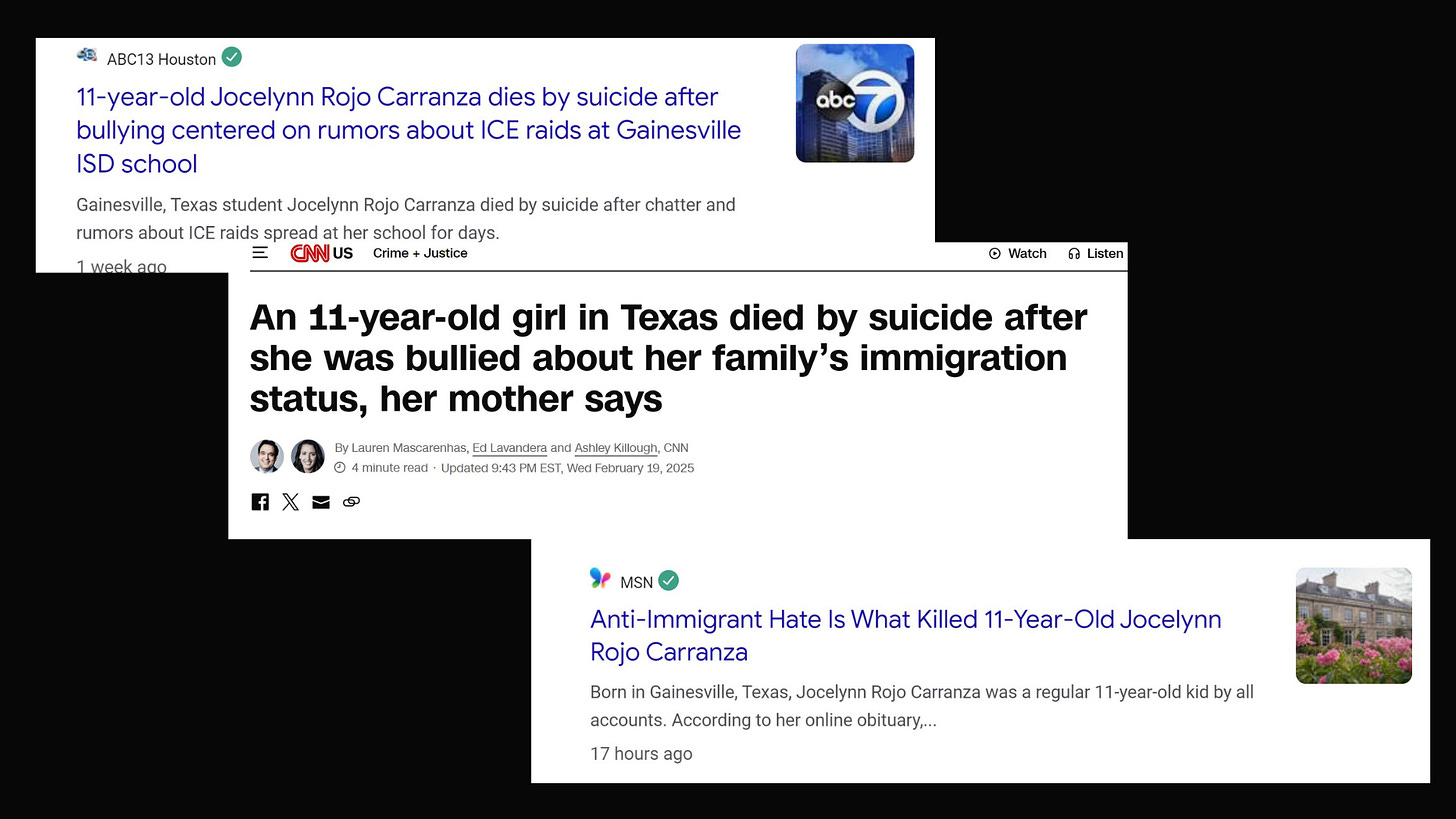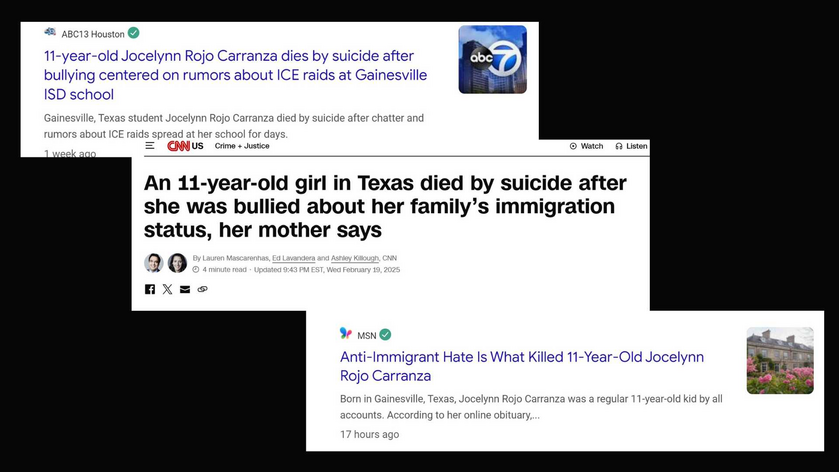GAINESVILLE, Texas — Jocelynn Rojo Carranza, an 11-year-old sixth-grader at Gainesville Intermediate School, died by suicide on February 8, 2025, five days after being found unresponsive at her home in Gainesville, Texas, on February 3.
Initial reports from her mother, Marbella Carranza, and widespread media coverage attributed her death to months of bullying by classmates over her family’s immigration status, with peers allegedly threatening to call U.S. Immigration and Customs Enforcement (ICE) to deport her parents.

However, a subsequent investigation by the Gainesville Independent School District (GISD) has revealed a more complex picture, including allegations of sexual abuse by a family member.
The media isn’t giving you the full story—I left the corporate-controlled media to fight the bias and report the truth. If you're a paid subscriber, thank you for your support. If not, I invite you to join and help keep independent journalism alive. I can’t do this without you, and you can cancel anytime.
Marbella Carranza told Univision and CNN that Jocelynn, a U.S.-born child of Mexican immigrants, faced relentless taunts at school, with classmates saying her family would be deported, leaving her alone. She said she only learned of the bullying after her daughter’s death, claiming the school never informed her despite Jocelynn meeting with a counselor once or twice a week. A specific incident was reported on January 30, 2025, when Jocelynn told her principal that a student on a school bus had made remarks about ICE and deportation to a group of Hispanic students. GISD confirmed the incident, noting the student was disciplined on January 31, though Jocelynn was not the direct target but was close enough to hear the comments.
The story gained national attention amid debates over immigration policy following President Donald Trump’s return to office in January 2025, with outlets like Newsweek and The Independent framing it as a consequence of anti-immigrant sentiment. A candlelight vigil on February 22 in Gainesville drew hundreds, with mourners honoring Jocelynn’s love for Spider-Man and her role as a French horn player in the school band.
On February 26, GISD released findings from its investigation, launched after students reported concerns on February 5. The district confirmed the January 30 bullying incident but added that multiple students interviewed after Jocelynn’s death said she had confided in them about being “inappropriately touched” by a family member, asking them not to tell anyone to avoid trouble for the relative. The district also noted Jocelynn attended seven social-emotional learning sessions between October 2024 and January 2025, authorized by a signed permission slip from her mother, though Marbella has denied knowledge of these sessions and demanded to see the document.
GISD further stated that after Jocelynn’s hospitalization, it learned she had shared thoughts of self-harm with a cousin, who allegedly told Marbella, but this was not reported to the school. Marbella has disputed the district’s claims, telling NBC DFW she was never informed of her daughter’s struggles and accusing the school of negligence. She has hired a lawyer and is seeking justice, while denying the abuse allegations.
The Gainesville Police Department is actively investigating Jocelynn’s death but has released no additional details. As of March 2, 2025, no arrests related to the abuse claims have been reported. The case has sparked outrage and confusion, with early media focus on immigration-related bullying shifting as new evidence points to a deeper personal trauma. Marbella Carranza continues to mourn her daughter, remembered by classmates as a “happy girl” who loved swimming and making TikTok videos, while the community grapples with unanswered questions.
So what actually happened? We may never know. The problem is with the legacy media who immediately went with a certain narrative without getting all of the information. This is wrong and it must stop.




















